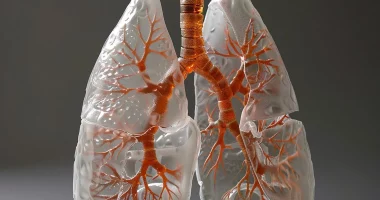Psychotic disorders are serious mental health conditions that cause unusual thoughts and perceptions. People with these disorders frequently lose touch with real life and might experience things like believing things that aren’t true (delusions) or seeing or hearing things that aren’t there (hallucinations). These conditions are categorized in the DSM-5, which outlines specific criteria for diagnosing each type.
Living with a psychotic disorder can be very distressing and can affect a person’s daily life and ability to take care of themselves. However, many of these disorders can be effectively managed with a combination of therapy and medications.
If you or someone you care about has been diagnosed with this disorder, it’s crucial to regularly see a psychiatrist for treatment.
Symptoms
Psychotic disorders involve a disconnection from reality, affecting thoughts, behaviors, and perceptions. Individuals with these disorders often exhibit both positive and negative symptoms.
Positive symptoms are behaviors that appear in addition to normal functioning, like delusions, hallucinations, and disorganized thinking or speech.
Conversely, negative symptoms involve the absence or reduction of normal behaviors, such as withdrawing from social interactions and showing reduced emotional expression.
Several psychotic disorders are lifelong conditions that typically begin in adulthood. These disorders can either progress, stabilize, or, in some cases, resolve over time. Understanding these symptoms is crucial for diagnosis and effective management through appropriate treatment and support.
Complications
This kind of disorder can lead to various complications that significantly impact daily life and well-being.
One common complication is an absence of self-care, where individuals may neglect basic activities such as eating and changing clothes.
Another complication arises from a lack of ability or hesitation to seek medical attention for physical symptoms. This can result in worsening physical health issues like injuries, infections, or other medical problems. Additionally, untreated medical problems can exacerbate the symptoms of the psychotic disorder itself.
Furthermore, individuals with psychotic disorders may experience suicidal thoughts or behaviors. It’s crucial for these individuals to receive appropriate support and treatment to manage these serious complications and improve overall quality of life.
Causes
Several factors contribute to the development of psychotic disorders.
Genetics
There’s a strong genetic link to psychotic disorders, meaning they often run in families. However, someone can still develop a psychotic disorder even without a family history, and having family members with these disorders doesn’t guarantee someone else will develop one.
The particular genetics involved aren’t fully understood yet. These disorders are linked to problems in brain function and neurotransmitters like serotonin and dopamine, which affect how the brain processes information.
Brain Structure Changes
Some psychotic disorders are associated with parts of the brain shrinking, like the temporal and frontal lobes. Sometimes, the brain’s ventricles (fluid-filled spaces) can become larger.
Other Factors
Certain antibodies in the body have also been linked to psychotic disorders, but it’s not entirely clear how immune system issues relate to these conditions.
Understanding these causes helps researchers and doctors develop better treatments and support for people living with psychotic disorders. Early diagnosis and appropriate care can make a big difference in managing symptoms and improving quality of life.
Diagnosis
Diagnosing psychotic disorders involves a careful assessment based on specific criteria tailored to each condition. These criteria encompass a range of behaviors, thoughts, and the time of signs. A diagnosis typically requires meeting a particular combination or number of these clinical criteria, instead of all of them.
A thorough medical evaluation for a potential psychotic disorder usually includes:
- Medical and Psychiatric History: Gathering information about your medical background and any previous psychiatric issues.
- Neurological Examination: Assessing the nervous system’s function, which can help identify any underlying neurological conditions.
- Cognitive Testing: Evaluating cognitive abilities such as memory and reasoning to understand how the brain is functioning.
Some symptoms of psychotic disorders can mimic those of other neurological, medical, and psychological situations. If your assessment doesn’t align with the criteria for this disorder or if there’s concern about another medical condition, additional diagnostic tests may be necessary.
While there are no specific imaging or blood tests that definitively verify psychotic disorders, these tests can help eliminate other potential causes of the symptoms. This thorough evaluation aids in accurately diagnosing the disorder and planning appropriate treatment to manage symptoms effectively.
Treatment
Treating a psychotic disorder involves a personalized approach tailored to the specific condition. Typically, treatment involves a combination of recommended counseling and medications. Antipsychotic medications are often prescribed to manage symptoms, and if a mood disorder is also present, additional medications may be recommended.
In addition to medication, psychotherapy or counseling is an essential part of treatment. These therapies involve speaking with a trained professional to address particular concerns and help find and change thoughts, behaviors, and unhealthy emotions.
Antipsychotic medications fall into two main categories: typical and atypical. Both types are effective in controlling symptoms, and your doctor will collaborate with you to determine the most suitable option for handling your condition.
Typical antipsychotics such as Haldol and Fluphenazine are known for side effects like sleepiness and extrapyramidal symptoms— spasms, tremors, and muscle rigidity. Adjusting medication doses can often alleviate these side effects, though some symptoms may persist even after discontinuing the medication.
Atypical antipsychotics like Clozaril and Abilify are also commonly used and may have different side effect profiles. These medications are chosen based on their effectiveness and tolerability for each individual, aiming to improve symptoms and enhance quality of life.
Outlook
The outlook for psychotic disorders can differ based on the cause and whether treatment is effective. Conditions like schizophrenia can be challenging to manage and may have long-lasting symptoms.
However, it’s possible to lead a fulfilling life while managing a psychotic disorder with proper care. This includes regular medical and psychiatric attention. Having support from family, life partners, friends, and healthcare professionals is crucial for improving the quality of life for individuals with these illnesses.
By staying connected to a supportive community and following a consistent treatment plan, it’s possible to achieve emotional and physical well-being despite living with a psychotic disorder. This approach helps to maximize life satisfaction and manage symptoms effectively over time.
Summary
Psychotic disorders involve a disconnect from reality due to genetic and brain structure factors, often diagnosed through criteria-based assessments. Treatment typically combines antipsychotic medications and therapy to manage symptoms and improve quality of life. While the prognosis varies, consistent medical and psychiatric care can support a healthy life.
Support from family, friends, and healthcare providers plays a crucial role in managing these conditions effectively. Understanding and addressing the challenges of psychotic disorders help individuals lead fulfilling lives despite their complexities.
involve a disconnect from reality due to genetic and brain structure factors, often diagnosed through criteria-based assessments. Treatment typically combines antipsychotic medications and therapy to manage symptoms and improve quality of life. While the prognosis varies, consistent medical and psychiatric care can support a healthy life.
Support from family, friends, and healthcare providers plays a crucial role in managing these conditions effectively. Understanding and addressing the challenges of psychotic disorders help individuals lead fulfilling lives despite their complexities.









